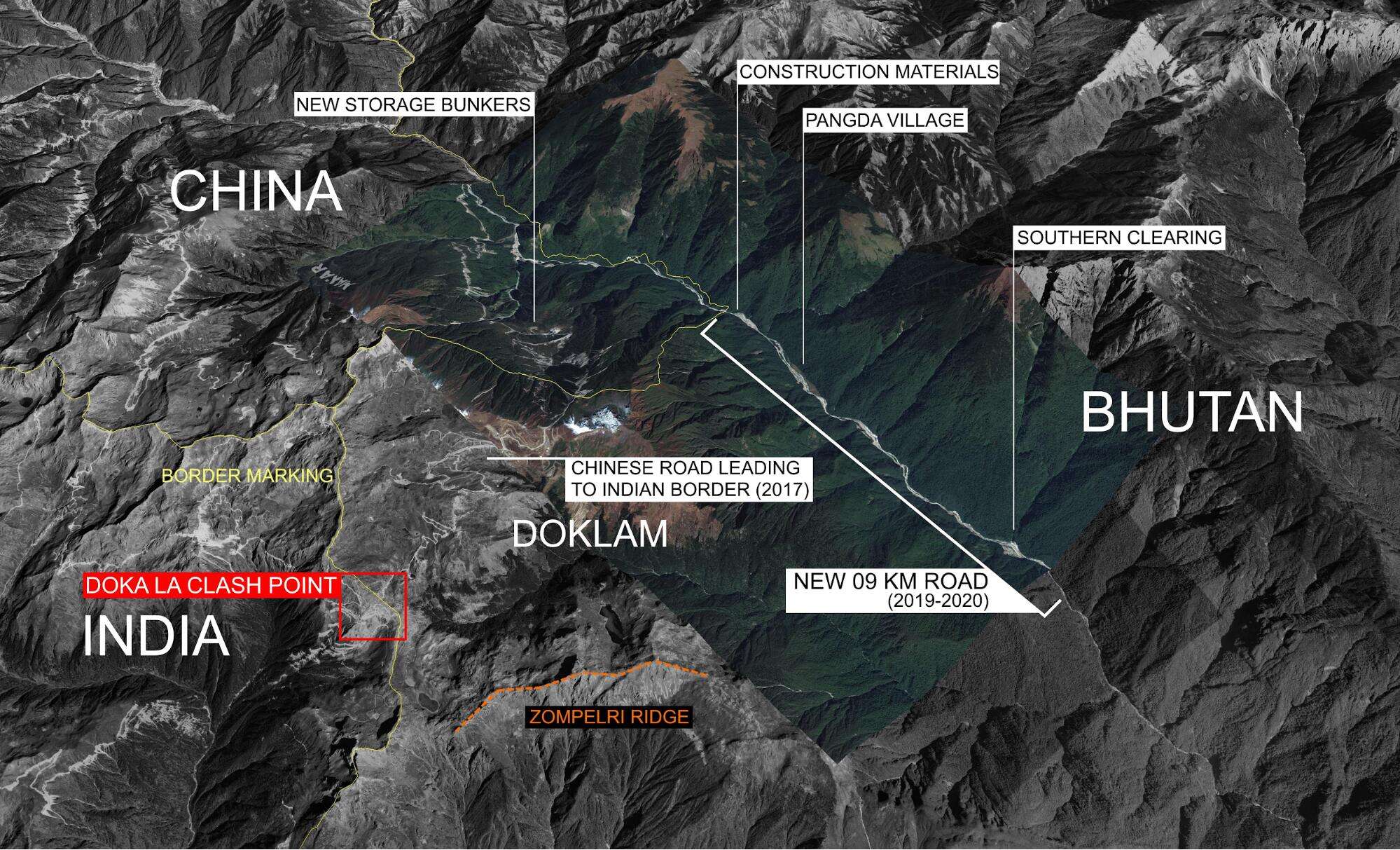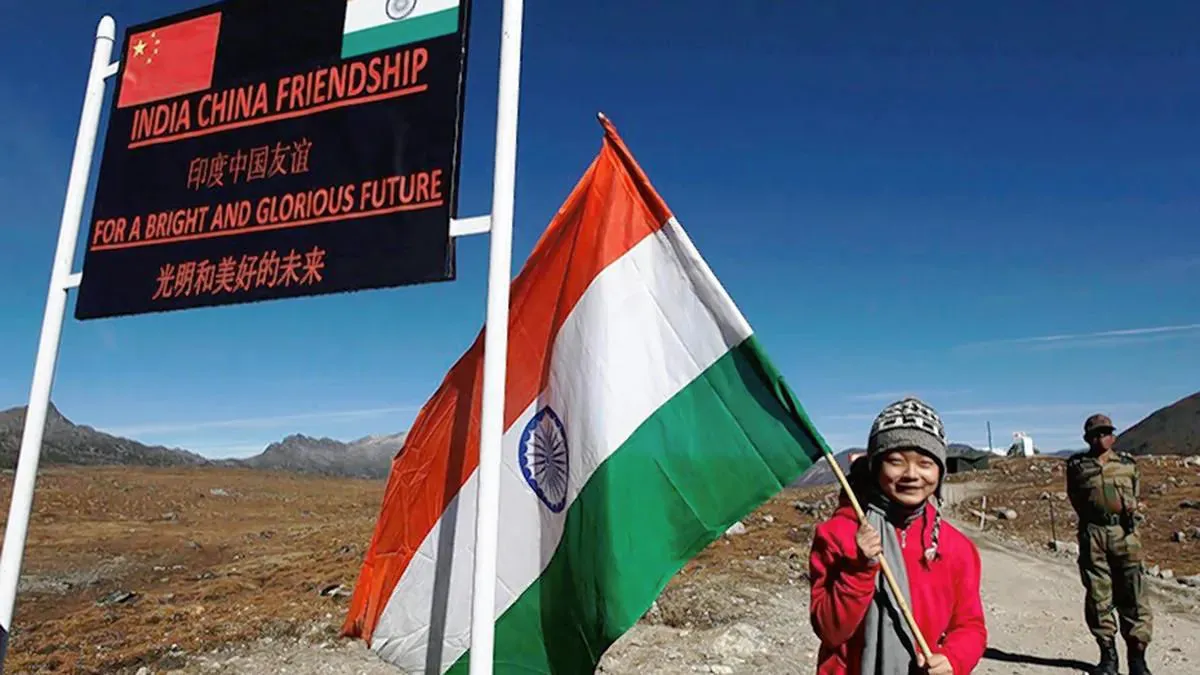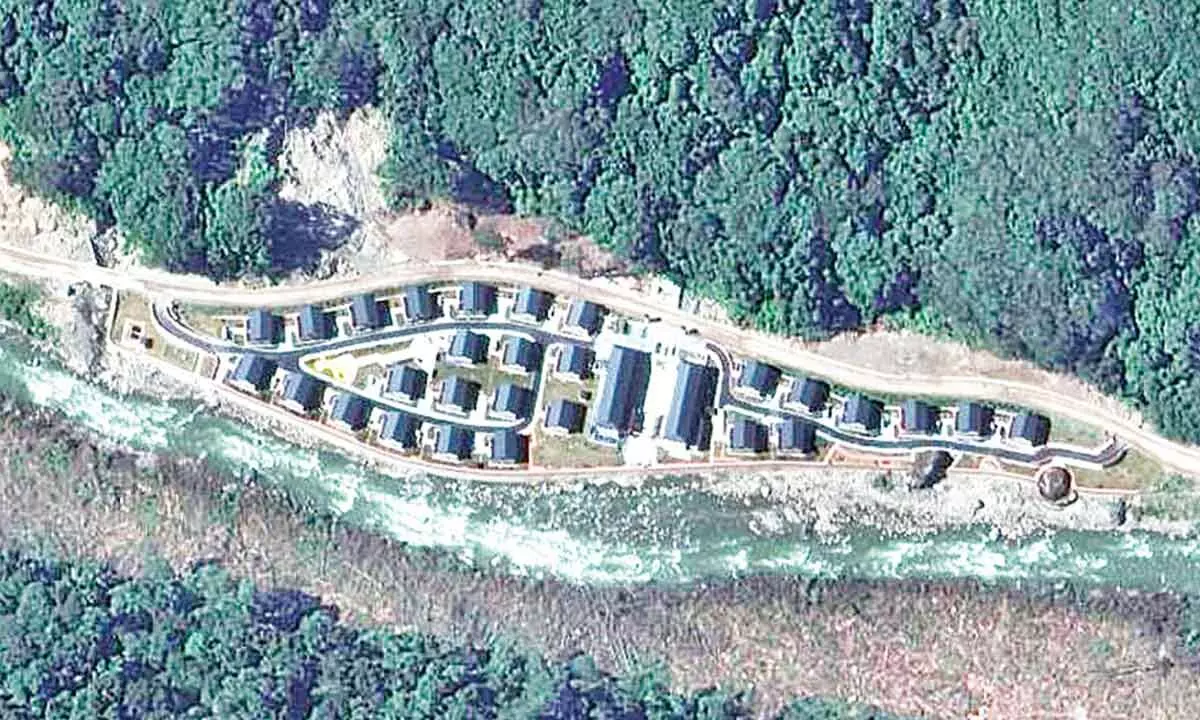As China keeps marching relentlessly across the Himalayan landscape, the construction of villages near Bhutan's Doklam plateau raises eyebrows and alarms in New Delhi. With at least 22 settlements built within Bhutanese territory over the past eight years, including eight in close proximity to the strategically significant Doklam since 2020, one can't help but wonder if this is merely a benign "Poverty Alleviation" initiative or a calculated move in a larger game of geopolitical chess. The implications for India are profound, especially considering the historical context of China's territorial ambitions and its previous maneuvers in the region.

Is This Just Another Strategic Expansion?
China's recent activities in Bhutan are not just about building homes; they represent a strategic expansion that threatens India's security. The villages are strategically sited on ridges and valleys overlooking areas claimed by China and thus give military advantages along with surveillance capabilities over the Siliguri Corridor-a vital land link between northeastern states of India. The latter is popularly known as the "Chicken's Neck," a narrow passage that can easily be broken if China manages to grab Doklam.
The construction of these villages resembles China's previous moves in Sri Lanka and other countries that it has gained influence in through infrastructure projects which, at the end, serve a dual purpose: economic development and strategic military positioning. The Hambantota Port project in Sri Lanka, for example, is the epitome of China's strategy to capture critical maritime routes. After Sri Lanka leased this strategically located port to a Chinese company for 99 years in 2017, concern over sovereignty and national security increased. This port has not only enhanced China's business interests but also served the strategic military ambitions of China in the Indian Ocean Region, with the port effectively helping the Beijing regime project its influence while keeping an eye on rival nations like India.
Should India Be Prepared for This?
The question looms large: Should India prepare for an escalation in tensions? The 2017 Doklam stand-off is a stark reminder of how quickly things can run out of hand when territorial integrity is at stake. While Indian troops intervened to scuttle Chinese construction activities aimed at Bhutanese sovereignty, both sides eventually drew back. However, Chinese actions since then suggest it has not abandoned its ambitions in the region.
India must learn to recognize these developments as being serious enough and prepare the ground for a better action. Bhutan's lack of a robust response to Chinese incursions is not something to reassure India about Bhutan's ability-or even willingness to stand firm against Chinese pressure. With Bhutan holding an ambiguous position regarding her borders with China, New Delhi needs to take up the possibility of needing a more assertive diplomatic and military push in the region to safeguard the interests of both countries.

What's Next for India?
China's strategy seems to be creating a perception within Bhutan that it cannot protect its interests without surrendering to Chinese demands. The strategy seems to undermine Indian influence while simultaneously forcing Bhutan to accept unfavorable border agreements. If Bhutan surrenders non-Doklam areas to China, it may create a dangerous precedent of territorial integrity being compromised under duress.
India must leverage its historical ties with Bhutan and enhance diplomatic efforts to ensure that Bhutan remains aligned with Indian interests. This includes not only military preparedness but also economic support and cultural engagement to strengthen bilateral relations.
Moreover, India's response should also involve engaging with other regional players who share concerns about China's aggressive expansionism. A collective approach could deter further Chinese encroachments and reinforce Bhutan's sovereignty.
_1734502768.png)
Currently we are at this stage, we need to secure our borders before any calamity or pressure from the foreign power.
Learning from Past Activities: Sri Lanka and Pakistan
China's moves in Sri Lanka can serve as a lesson to India while it deals with Bhutan. China has used arms sales and investments in infrastructure over the last decade to solidify military ties with Sri Lanka, thereby transforming the face of South Asia's politics. The Hambantota Port lease is one such example of how economic dependence can be translated into strategic control by China—an alarming trend that may come true in Bhutan also, unless strong measures are taken.
Secondly, Pakistan is another of China's long-term strategies. Under the China-Pakistan Economic Corridor (CPEC), China has invested massively in the country through infrastructure development projects such as roads and energy plants. This has allowed China to gain a toehold in Pakistan, far beyond economic interests to military collaboration4. As such, this cooperation with Pakistan has been seen to be a threat to India from the west, showing how Chinese influence can destabilize the regional security dynamics.

We have so many problems, but our government has a one liner sollution to it - SAB CHANGA SI
Conclusion
It is clear, however, that the exercise for China is not merely about rural development; it's a calculated move aimed at an expansion of influence and control within a region fraught with historical tensions. For India, vigilance, strategic foresight, and proactive measures become the call of the hour to ensure that its own interests—and those of Bhutan—are protected against this increasingly assertive China. It is now time to act because inaction may lead to some terrible consequences for regional stability and security.
With inputs from agencies
Image Source: Multiple agencies
© Copyright 2024. All Rights Reserved Powered by Vygr Media.










